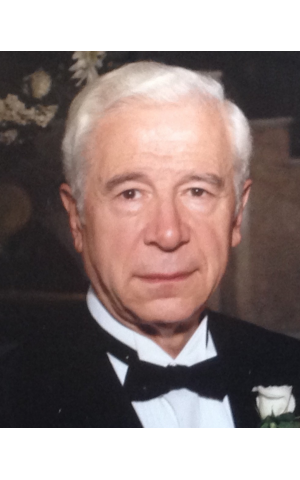Letters to the editor: March 15, 2019
AJT welcomes letters for a constructive dialogue. Please write to editor@atljewishtimes.com with 200 words or less, your name and phone number.
Letter to the editor:
In our family, that’s Bev, as well, and all the Lewyn clan, we are very proud that she pulled out Bert’s (z”l) story of his survival in Berlin, after his parents were taken away and murdered in a concentration camp. If Bev had not written the book with him, we doubt it would have come to be.
It may be interesting to the readers to know why Bert (z”l) came to Atlanta 70 years ago. Bert’s father, Leopold (z”l), was a nephew of Sara Hene Geffen (z”l), my grandmother.
In the 1930s, Rabbi Geffen (z”l) wrote over 40 letters to Leopold to leave Berlin with his family. Since Rabbi Geffen did not use carbon paper, we only have Leopold’s answers in German, which are in Geffen papers at American Jewish Historical Society in New York.

As many German Jews, even though Leopold had been born in Kovno, Lithuania, he stayed because he thought that Hitler (may his name be cursed) would not succeed. By 1940, when Leopold realized what was transpiring, he sent a telegram to Rabbi Geffen to send money so they could buy their way out.
It was too late. Bev, an Emory Truman scholar and CNN researcher before she married Marc Lewyn, has now updated the first edition of the book “On the Run in Nazi Berlin,” as was discussed in her interview in last week’s Atlanta Jewish Times.
As soon as the war was over, Rabbi Geffen began to search all the lists of survivors. Bert, Sara Hene’s niece, Riva Guttman (z”l), Bert’s aunt, survived, as did Dov Levin (z”l), who became a professor at the Hebrew University. In Rabbi Geffen’s diary of 1945, he noted that he heard from Riva and Dov, by way of a cousin in New Orleans. In a moving response letter, which Rabbi and Mrs. Geffen answered with tears in their eyes, Riva had described to them what happened to the Lewyn-Levin family and how her husband and twins were slaughtered.
As was the case with other survivors, Bert’s location in Germany could not be ascertained. Only in 1949 did a chaplain write to Rabbi Samuel Geffen (z”l) to tell him Bert was trying to connect with the Geffen family. The rest of that part of the story you can read in Bev’s new edition of the book. The following words of Bert in June 1949 are very powerful.
“When the train pulled into the Union Station in Atlanta, there was only one person waiting on the platform. It was an elderly gentleman, somewhat hunched over (79 years old), with a full grey beard and hat in a black caftan-like coat and walking stick. I had no doubt that this was Rabbi Tobias Geffen. ‘Arriving at 593 Washington Street,’ Mrs. Geffen walked up to me and hugged and kissed me and screamed for some time about how happy she was to see me and to have me there. … When I reached the Geffen’s, seven years of misery ended at last. On that day, the 29th of June, 1949, I finally came home once again.”
It was an honor for me to meet Bert, on July 1. He was my personal Holocaust hero.
Rabbi David Geffen, Israel, formerly Atlanta
Letter to the editor:
I enjoyed reading the article about simchas and all the amazingly extravagant parties involved. However, I feel it is important not to take our mind off the most important part of the day — the actual ceremony. For the ceremony, most of the youngsters will need a tallit and that is why I am writing. I run the Congregation Beth Shalom Gift Shop. It is very special to help your child choose their tallit and see them try it on.
Sheila Schwartz, Atlanta




comments